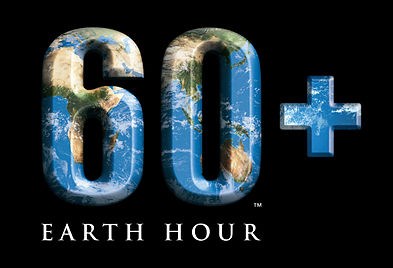The popularity of Earth Hour continued to wane this year, with energy consumption actually rising between 8:30 and 9:30 p.m. last Saturday.
In the Tri-Cities, power consumption rose 1.1% during the time when residents were encouraged to turn off lights and unnecessary electrical appliances to raise awareness about climate change.
According to BC Hydro, the trend was seen across the Lower Mainland, where electricity use rose 0.5%; and the province, where consumption increased 0.2%. BC Hydro said it compared the power use for Earth Hour to the same time period the week before.
Chris O’Riley, Hydro’s president and CEO, said the annual event, which is organized by the World Wildlife Fund and includes 180 countries around the world, is still a good way of teaching the public about energy conservation.
“While Earth Hour may have lost some of its momentum in B.C. in recent years, we still see this as a symbolic event,” he said. O’Riley added that the initiative is “a way to raise awareness about energy conservation.”
But the data shows that the popularity of Earth Hour has been falling in the last few years.
When it launched in Canada in 2008, energy consumption in B.C. dropped 2% during the 60-minute period. Last year, power use only fell 0.3% and 2018 is the first time the province has actually seen an increase.
A survey conducted by BC Hydro found that seven out of 10 respondents said they would participate in Earth Hour this year and believe it is an important event. But 94% said they already turn off lights to save energy and 69% said their biggest motivation for reducing energy consumption is to save money.
In the past, municipalities have worked to promote Earth Hour and have encouraged residents to participate.
Port Coquitlam manager of communications Pardeep Purewal said the city posted about the event on social media channels. Coquitlam environmental projects manager Verne Kucy said the city supports the principles of Earth Hour but “is focused more on its corporate energy conservation measures and outreach activities intended to engage the public.” Port Moody did not respond to a request for comment before The Tri-City News’ deadline.
Earth Hour started in Sydney, Australia in 2007, when 2.2 million individuals, businesses and organizations took part. It has since spread around the globe and in 2017 the World Wildlife Fund said 12,000 landmarks, including the Eiffel Tower, the CN Tower and the Golden Gate Bridge turned off their lights.
10 STEPS TO SAVINGS
BC Hydro offers tips they say could save you up to $455 per year, including:
• Unplug your second fridge and save up to $90 per year.
• Lower the thermostat to 21 C during the day and 16 C at night while sleeping to save up to $72 per year.
• Unplug unused electronics and save $50 per year.
• Hang dry laundry to save about $47 per year.
• Be strategic with window coverings by keeping the warm air in during the winter and the cool air in during the summer to save about $45 per year.
• Skip the dishwasher heat-dry setting and save up to $37 per year.
• Cut one load of laundry per week by only running full loads and save $30 per year.
• Reduce shower time by a minute to save $30 per year.
• Wash laundry in cold water and save up to $27 per year.
• Toss a dry towel in the dryer and save $27 per year.
@gmckennaTC



